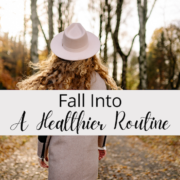Are You Waking Refreshed or Groggy?
What changes have you noticed about your health in these past months of sheltering in? Many are finding themselves more relaxed about it as time passes. And how about your sleep – are you waking refreshed or groggy? Do you fight to make yourself get out of bed in the morning?
Cortisol and melatonin are key players in our sleep patterns. Cortisol rises to wake you and its levels are changing throughout the day. Your cortisol levels normally peak in late morning and then falling through the rest of the day. As cortisol falls in the evening, melatonin rises to prepare your body for sleep.
When you sleep soundly, with good REM cycles, you will generally awake feeling refreshed. If you find yourself feeling groggy in the morning – needing coffee to get you going – it is a sign that you aren’t sleeping well and should investigate further.
So are you waking refreshed or groggy? If groggy, one of these factors may be at play ….
- not allowing enough time to sleep
- low serotonin levels limiting melatonin
- low cortisol for Cortisol Awakening Response
- physiological stress during sleep
Not Allowing Enough Time to Sleep
You have heard me say it many times – sleep is vital for your health and you must prioritize time for it. You may think that you can get by with just a few hours, but your body is not able to function efficiently and you will pay the price eventually.
Low Serotonin Levels
Having sufficient levels of serotonin is important because melatonin is made from serotonin. Most of our serotonin is made in our gut, and digestive issues can hinder its production. If you have taken SSRI medication for an extended period, you are also likely to have low serotonin levels.
Low Cortisol Levels
If you have been living in perpetual “fight or flight” mode for an extended period of time, your cortisol levels may be low which limits the Cortisol Awakening Response. This is the morning rise in cortisol that helps to wake you up. If your alarm goes off when you are in deep sleep, you will feel groggy because you lack the Cortisol Awakening Response boost.
Physiological Stress During Sleep
There may be other sources of stress that prompt an early Cortisol Awakening Response, such as allergen exposure (e.g. pets or mold in the bedroom), or low oxygen levels from sleep apnea. Unidentified food sensitivities can also be causing stress to your body and either limiting the depth of your sleep or stirring an early Cortisol Awakening Response.
As you see, sleep can be affected by more than your intake of stimulants (caffeine or sugar) or alcohol.
When I work with clients to resolve the symptoms and dis-ease dynamics in their bodies, we explore sleep by starting with what I call sleep hygiene. No, I’m not referring to taking a bath or shower before bedtime. I’m talking about the process of preparing for bed and supporting your natural rhythm to enhance sleep. You can read more about sleep hygiene here.
Your body is an amazing creation that will serve you well if you support its function with quality fuel, movement, interaction with people and sleep.









Leave a Reply
Want to join the discussion?Feel free to contribute!